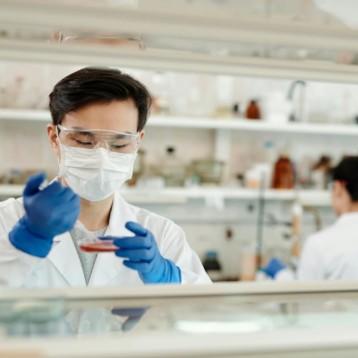Advancements in hormonal science have always sparked debate, curiosity, and hope. As the year 2025 unfolds, the landscape of women’s healthcare reveals both promising innovations and persistent inequities. A thoughtful exploration of hormone research offers a glimpse into how the chasm of unmet medical needs could begin to close. Understanding the nuances of these scientific strides requires both an appreciation for complexity and a willingness to confront the systemic gaps that persist.

Evolving Understanding of Hormonal Health
In previous decades, hormonal health often lingered on the periphery of mainstream medical attention. Conversations about estrogen imbalances, progesterone deficiencies, and menopausal transitions were relegated to whispers. Women faced not only biological changes but also the profound stigma attached to these transformations. Hormone replacement therapies emerged, but initial approaches lacked the precision and customization now achievable with modern science.
In recent years, bioidentical hormones have gained attention for their molecular compatibility with natural hormones. Research suggests these therapies may reduce risks and enhance efficacy for women seeking relief from menopause symptoms or hormone-related conditions. Sophisticated diagnostic tools, including saliva-based testing and personalized biomarker analyses, have transformed the ability to tailor treatments. Individualized care plans are no longer a distant aspiration but a present-day reality, promising outcomes that align with unique biological rhythms.
Yet, not all women have equal access to these advancements. Structural barriers—economic disparities, cultural stigmas, and regional healthcare inadequacies—create inequitable outcomes. The journey toward bridging these divides requires dedication to policy reform, enhanced public awareness, and education for both patients and providers.
Closing the Gap Through Precision and Equity
Precision medicine, a cornerstone of modern healthcare, holds the potential to address the complexity of hormonal health. This approach emphasizes interventions rooted in genetic, environmental, and lifestyle data, creating opportunities to address specific needs. For women experiencing conditions such as polycystic ovary syndrome or endometriosis, precision-focused hormonal therapies may provide relief without the trial-and-error cycles that have historically characterized treatment.
Scientific exploration into hormonal signaling pathways has illuminated the interconnection between endocrine health and broader physiological systems. For instance, studies linking thyroid function to cognitive performance highlight the necessity of treating hormonal imbalances holistically. Researchers are increasingly investigating how fluctuations in hormones influence cardiovascular health, metabolic processes, and mental well-being.
Despite these breakthroughs, societal challenges remain. Women in underserved communities often encounter barriers to receiving accurate diagnoses or appropriate treatments. Additionally, a persistent lack of education about hormonal health exacerbates misinformation and mismanagement. Expanding access to medical innovations will require collaborative efforts from policymakers, healthcare institutions, and scientific leaders. Addressing these disparities necessitates rethinking traditional healthcare delivery models, integrating telemedicine options, and fostering trust through culturally informed care practices.
Progress will not emerge solely from technological innovation. True advancement hinges on empathy, inclusivity, and the commitment to dismantling systemic obstacles. Women deserve healthcare that recognizes both the biological and psychosocial dimensions of their experiences. Hormonal science, with its remarkable potential, can serve as a catalyst for a more equitable future.
The Promise of the Future
Looking ahead, the integration of artificial intelligence into hormonal research offers opportunities to decode intricate patterns in health data. Machine learning algorithms can analyze patient histories, laboratory results, and genetic profiles to identify optimal interventions. This capability could enable earlier detection of imbalances, reducing complications and improving long-term health trajectories. Although these technologies hold immense promise, ethical considerations surrounding privacy and bias must remain at the forefront of development.
Emerging therapies, such as hormone-adjacent treatments targeting cellular receptors, represent another exciting frontier. Researchers are delving into how selective estrogen receptor modulators may address conditions like osteoporosis and certain types of cancer. These advancements reflect the potential for hormones not just as therapeutic agents but as keys to unlocking broader health solutions.
While innovation propels hormonal science forward, its implementation must be accompanied by sensitivity to the human stories that intersect with these discoveries. A menopausal woman struggling to articulate her symptoms to an unsympathetic clinician, a young adult grappling with endometriosis while balancing societal pressures—these narratives underscore the importance of personalized care.
Healthcare is not merely the application of science; it is an acknowledgment of individual experiences and identities. Bridging the gap between innovation and accessibility requires intention, investment, and unwavering commitment. With these principles in mind, the future of hormonal health may become a beacon of equity, efficacy, and empathy.










